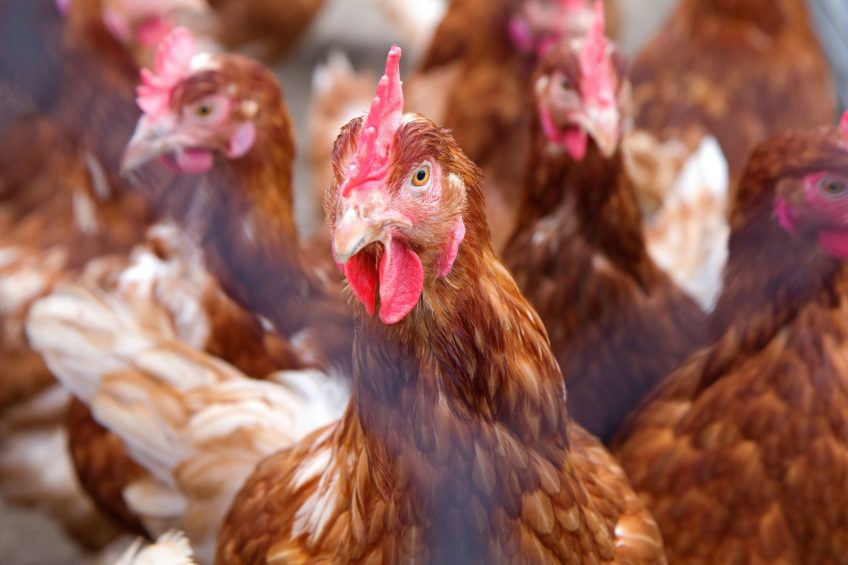Welfare payments for broilers and layers explored

Poultry farmers could receive financial support for welfare commitments in a post-Brexit world as part of an incentive to improve animal welfare.
Environment Secretary Michael Gove has already indicated that farmers could be paid for introducing higher welfare measures and the RSPCA has now produced a new report, which attempts to turn the Government’s vision into reality.
The “Into the fold: help for farmers” report says the new farm support system, due to come into effect from next year, should be targeted at farmers who want to improve welfare but adds there is no market incentive for them to do so.
The RSPCA highlights that laying hens can still be kept in cramped cages with less space than an A4 sheet of paper, while broilers do not have to have any natural light.
Reward farmers
It argues that the new support system should reward farmers with public money only if they go beyond current standard industry practice on animal welfare. That would stand the UK at a genuinely competitive advantage post-Brexit.
David Bowles, RSPCA head of public affairs, said the scheme would give farmers the financial leg-up they need towards much higher welfare production:
“We’ve set out a highly workable two-tier proposal for farmers to be paid to invest in higher animal welfare standards while ensuring they are not undercut in any new trade deals,” he said.
Two Tiers
• Tier one is a transitional payment tier whereby payments would be awarded to producers for implementing measures, such as to build new, modern housing to meet higher welfare standards, and to implement programmes to improve animal health and welfare
• Tier two payments would be awarded to producers that are members of a higher welfare farm assurance scheme, delivering higher standards of welfare covering the whole life of the animal and would be measured through welfare outcome assessments, including feather cover in laying hens.
Producers would be incentivised to move from tier one to tier two and the proposals have been developed to meet World Trade Organisation (WTO) rules.
The report also suggests that the moves could be done at a relatively small cost with payments being made for training, infrastructure, capital costs and enrichment to improve animal welfare along with support for farmers who are producing higher welfare products at a financial loss to competitors.
Farm subsidy payments should be benchmarked to standards and include welfare outcome assessments to demonstrate higher welfare, be prioritised to sectors where the market is not delivering improvements in animal welfare and be linked – and complementary to – other public good payments, such as landscape or environmental benefits.
RDP payments
Welfare payments are already being paid to poultry producers in five different European Union countries through the Rural Development Programmes (RDP) and may provide useful examples on which to base a payment mechanism that could be adopted in the UK.
Support payments are being made to producers in Estonia, Slovakia, Germany, two regions in Italy and Greece for increased space for laying hens and broilers:
• In Estonia, producers with laying hens who commit to a maximum density of 8 hens/square metre and 16kg/square metre for broilers receive €1.19/head
• In Slovakia, broiler producers committing to rearing at a maximum stocking density of 30kg/square metre receive €0.53/head
• In Lower Saxony, Germany, farmers are paid – as part of a package – for rearing 7 laying hens/sq metre and 15kg/square metre for broilers
• In Greece, farmers get €1.08 for producing broilers below the 25kg/square metre rate
• And in the Calabria and Liguria regions of Italy they receive funding if they grow laying hens at below 4 hens/square metre (Calabria) or 20kg/square metre (Liguria)
The RSPCA says that payment could be made for rearing birds under a higher animal welfare scheme that takes into account income foregone and has measurable outcomes in terms of improved overall welfare.
It adds there is considerable support from the public for animal welfare payments, with eight out of ten people agreeing that farm subsidies post-Brexit should be used to improve animal welfare.













